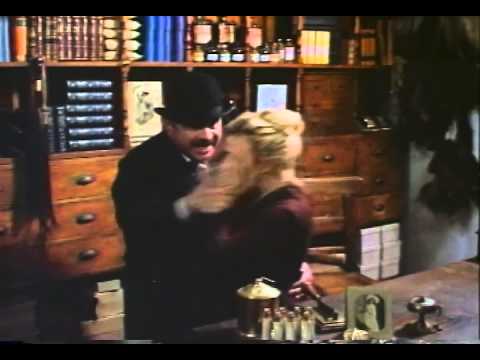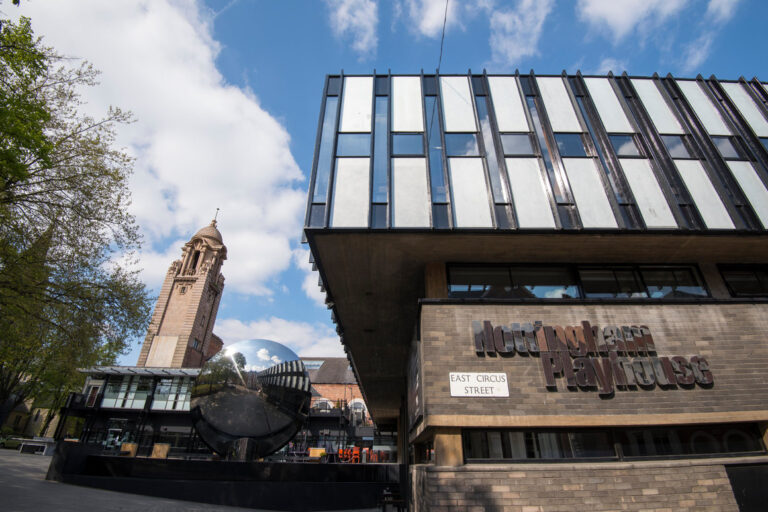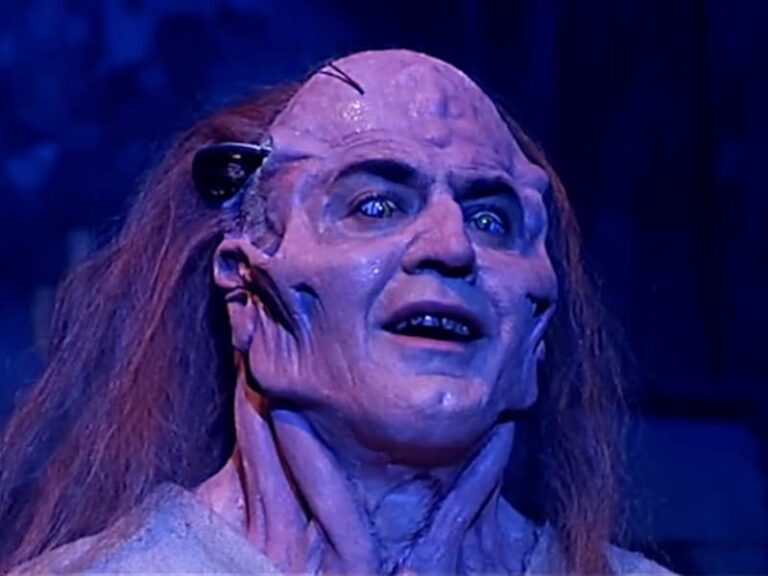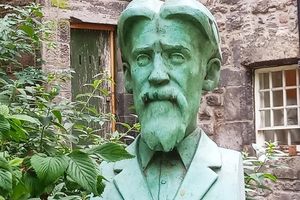The Dazzling Robin Williams Role We Missed
Great performances are worth seeking out in great movies, obviously, but what about bad ones?
Would you watch a lousy movie in order to witness a single, stellar performance? Is it worth our time, for example, to revisit “The Lonely Bones” to see Stanley Tucci’s justifiably Oscar-nominated work in Peter Jackson’s failure of a literary adaptation?

How about Tom Cruise’s spectacular turn in the otherwise embarrassing “Rock of Ages”?
Is it worth our time to pay another visit to the vehicles that starred Gene Hackman, Denzel Washington or Michael Caine that are notoriously not acceptable movies but still showcase how good they could are, even with bad material?
This question has lingered with me, particularly as I consider the unjustly forgotten but still not-great “Joseph Conrad’s The Secret Agent.” This 1996, all-star adaptation of Conrad’s 1907 novel, about spies and mad bombers, was an instant flop in theaters and is hardly remembered.
There is, however, a quality to it that deserves consideration, and that is the deeply haunting performance from none other than Robin Williams.

“Joseph Conrad’s The Secret Agent” is set in 19th century London and stars Bob Hoskins as Verloc, the agent of the title; Verloc is married to Winnie (Patricia Arquette), who watches over her mentally disabled brother (a post-“Little Women” Christian Bale, years away from his “American Psycho” breakthrough). A tragedy turns everything sideways, as loyalties are greatly tested and the discovery of an involvement in a bombing plot leads to more murder.
Director Christopher Hampton’s relentlessly grim and admirably out-of-step Conrad adaptation never fully engages us with its themes or character’s inner yearnings. What keeps us watching is the cast — while he goes over the top at times, Hoskins is first rate and always a pleasure to watch.
So is Arquette, whose character is the heart of the film, a touch of humanity the rest of the dour proceedings lack. Jim Broadbent, Eddie Izzard and Bale also make striking appearances (Bale, in particular, stands out for playing the thankless role of Arquette’s mentally disabled brother, whose actions in the second act have devastating repercussions).
Gerard Depardieu is mostly unintelligible, which is not something I write with any satisfaction. In France, he deserves his reputation as “The French De Niro” but his American film roles (starting with the lead in “Green Card” and onto a Wet Bandit-like baddie in “102 Dalmatians”) are, for the most part, an assortment of embarrassments.
Either the films don’t work or he’s all wrong for the parts. Here, I wanted his scenes to have the impact intended but they simply don’t.
Then, there’s Williams, whose scary, riveting and curiously unbilled turn as The Professor, a mad bomber who always has a bomb strapped to his chest as he walks around town, is the film’s best.
Williams made surprising, unbilled cameos before (witness his standout performances in Kenneth Branagh’s “Dead Again” and Terry Gilliam’s “The Adventures of Baron Munchausen”) but the darkness in his portrayal here is jolting.
While he subsequently played men with deranged outlooks (notably in “One Hour Photo”) but, coming after the likes of “Mrs. Doubtfire” and “Jumanji,” this alarming change of pace isn’t merely effective stunt casting but another opportunity to see how impressive the late comic genius was with challenging material.

Another element that equals the magnificence of William’s performance — Phillip Glass’s beautiful, rarely appreciated score.
The theme of bitter local terrorists mustering up the hateful conviction to carry out their plots is, unfortunately, more immediate today than it was in 1996, to say the least. Yet, the film is so cold and the central dynamics between the leads so devoid of human feeling (minus Arquette’s stirring work), the whole thing leaves its audience with a muted shrug.
Hampton is also credited with writing the film adaptation of Valerie Martin’s “Mary Reilly,” which opened the same year; the two films are not only similar in that they’re ambitious failures with interesting artistic qualities but also sport soupy cinematography.
Here, Hampton had a dream cast and strong source material (although it’s hardly regarded as one of Conrad’s essential works) but the end result is a worthwhile curiosity item. What lingers is the work of Williams and Glass, while the rest leaves a murky impression.
Is “Joseph Conrad’s The Secret Agent” worth tracking down for Williams’ amazing performance? Yes, though it means having to watch the entire film, which only shines when he’s onscreen.
The post The Dazzling Robin Williams Role We Missed appeared first on Hollywood in Toto.





